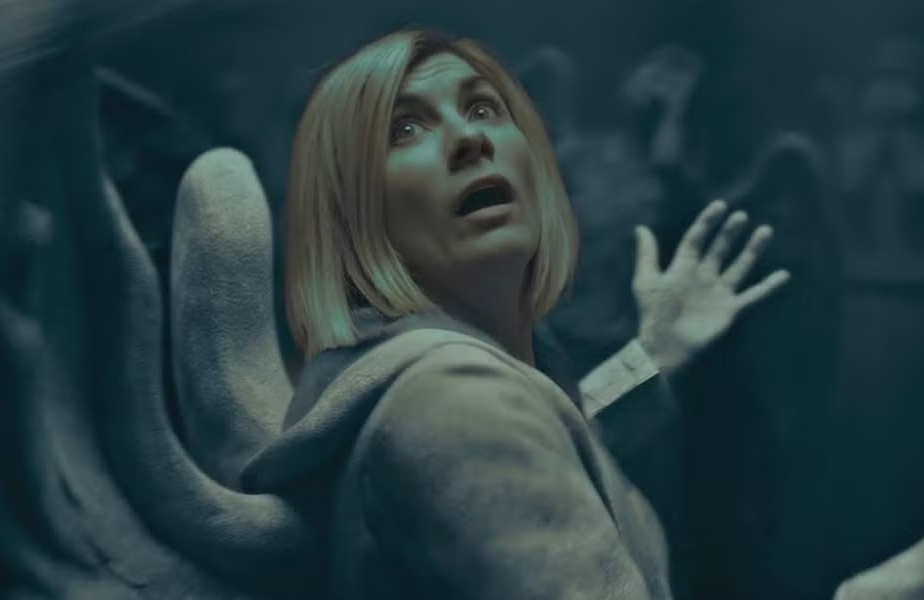It’s not easy being a Doctor Who showrunner! Let’s look at some of the biggest challenges facing the holders of the TARDIS keys…
1) “It’s not as good as it used to be!”

It’s no secret that every Doctor Who showrunner since the 1960s has had to deal with the complaint that the show “isn’t as good as it used to be.” A few years ago, someone on Twitter posted a screenshot of a newspaper article from 1963 which reviewed the second episode of ‘An Unearthly Child‘ (the very first serial.) That particular viewer was lamenting the fact that the opening episode had held so much promise, but the follow-up was such a let-down. Truthfully, people had been complaining that “Doctor Who isn’t as good as it used to be” since 1963! (Does anyone have the source for this?)
These complaints became more vocal with the birth of fanzines in the 70s and 80s. And of course, in the modern era, Doctor Who showrunners also have the forums and social media platforms to contend with. Doctor Who has such a vast and rich back catalogue that there will always be the temptation to look back at the Lambert era, or the Hinchcliffe era, or the John Nathan-Turner era(?) through rose-tinted spectacles.
One Doctor Who showrunner, though, had a rougher ride than most. John Nathan-Turner famously told fans that their memories were “cheating” and that they were remembering classic stories as being better than they actually were. He later regretted this when the old adventures came out on VHS and fans could see that, actually, ‘The Talons of Weng-Chiang‘ wasn’t half bad.
2) The Doctor-lite episodes

Believe it or not, some Doctor Who showrunners have had to make episodes without the titular character. In the 60s, when the programme was shot on a weekly basis, the Doctor Who showrunners had to allocate time off for their actors, meaning that there are some serials in which the Time Lord is absent for whole episodes. An early example of this can be seen in ‘The Keys of Marinus,’ where the Doctor travels to a different part of the planet and leaves his companions to fend for themselves; he’s missing for a whole two weeks! William Hartnell is also absent for the third episode of his final story ‘The Tenth Planet‘ due to to ill health, and replaced with a body double.
In the modern era, Doctor Who showrunners have faced the problem of needing to film more episodes than they can physically fit into their schedules (with the exception of Chris Chibnall, whose era doesn’t feature any ‘Doctor-lite’ stories.) Russell T Davies and Steven Moffat, however, circumvented this by shooting two episodes simultaneously, and because they were unable to clone their stars, they simply rendered them absent.
Perhaps the best example of a ‘Doctor-lite’ adventure is ‘Blink’ which, ironically, has become a fan favourite. The Time Lord only appears in pre-filmed DVD inserts (the character of Sally Sparrow literally watches him on a DVD.) David Tennant did shoot a couple of bridging scenes to help the story along, but for the most part he is missing.
The Time Lord’s absence was also an issue during the Ncuti Gatwa era, but for slightly different reasons. The actor’s filming schedule clashed with his other series Sex Education, and so Gatwa only made fleeting appearances in some of his stories, most notably ‘73 Yards‘ and ‘Dot and Bubble.’
3) Audience retention
Every Doctor Who showrunner has felt the pinch of the viewing figures, whilst also (ironically) being quick to reassure people that viewing figures don’t actually matter. Ultimately, of course, they do; if no one’s watching your show, there’s no point in making it, right?
However, the level of scrutiny that Doctor Who showrunners have faced is, arguably, unprecedented in the world of TV. The overnights for Doctor Who episodes get reported as headline news, and journalists (and fans alike) love to scrutinise the inevitable rises and falls. It’s fun – unless you’re the showrunner, of course, whose job might be on the line!
Certainly, it has become harder for Doctor Who showrunners to hang on to their viewers, and the programme’s structure and presentation has evolved as other online platforms have started battling for people’s eyeballs. Steven Moffat, for example, made a conscious effort to make his two-part stories visually distinctive, so that they didn’t look like two-parters. For example, there is a massive difference between ‘Silence in the Library’ and ‘The Forest of the Dead’ (the latter episode shifts the action to an alternate reality.) And then there is ‘Under the Lake’ and ‘Before the Flood’ which, trailer-wise, look like two completely different adventures.

The rationale behind this was to lure audiences back each week, and to avoid them feeling like they were getting ‘more of the same.’
And as time has gone on, there appears to have been a narrative shift towards shock value, perhaps as Doctor Who showrunners have ceded to the temptation to trend on social media. Not that there is anything wrong with this, of course; social media can be a valuable source of free marketing, if enough people are talking about your programme.
It does mean, though, that there are some story moments which – while great for a Twitter feed – aren’t always explained in the episodes themselves. An example of this (possibly!) is one of the cliffhangers from Doctor Who: Flux, where the Time Lord is turned into a Weeping Angel. It doesn’t make any sense from a narrative standpoint, and the reasoning behind it is never made clear, but what a memorable moment, and great for Instagram. Scenes like this are good for luring in the casual viewer, who might not have watched Doctor Who for many years.

In short, it’s not easy to be a Doctor Who showrunner. Whatever creative decision they make, there will always be someone who hates them for it. Indeed, the #MoffatMustGo hashtag became so notorious that the writer himself started using it! Doctor Who has such a long history, and everyone has their own idea of what makes a ‘perfect’ story. Is anybody, really, able to bear the true weight of the show?










Leave a Reply